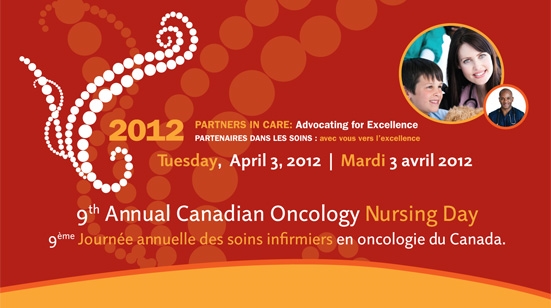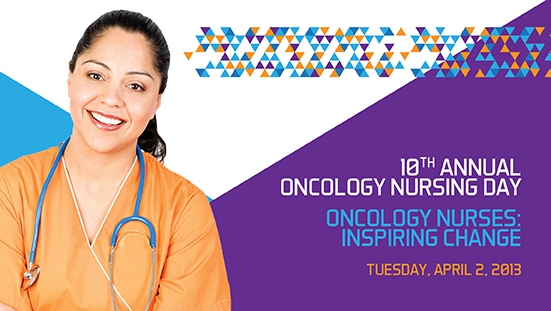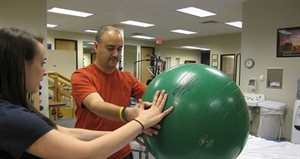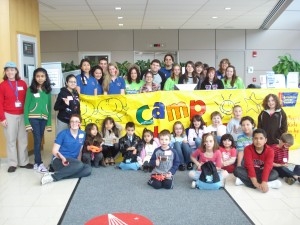Oncology Nurses Day 2024 is on Sunday, September 8, 2024: Can someone please describe the career of a Pediatric Oncology nurse?
Sunday, September 8, 2024 is Oncology Nurses Day 2024. Gifts for Nurses 300+ Gifts Starting at Just $1.00 Totes, Mugs, Pens & Much More!
As an Amazon Associate I earn from qualifying purchases.

A pediatric oncology nurse cares for infants, children and adolescents who have been diagnosed with cancer. A pediatric oncology nurse may be a clinical nurse, a case manager, an educator, a researcher or an administrator.
A pediatric oncology nurse provides healthcare to children (infancy to adolescence) and performs numerous job functions on a typical day. Essential duties include preparing and administering chemotherapy under a physician's supervision, explaining treatment plans to the cancer patient's family, and assessing the physical and psychological needs of pediatric cancer patients.
Additional duties involve collaborating with the pediatric patient's medical team. This team may include the primary doctor who provides medical referrals, the oncologist who provides specialized knowledge, a social worker who may provide local support resources, and a dietician who may provide nutritional assessments because children with cancer have special nutritional needs.
Advanced pediatric oncology nurses may specialize in research and evaluate findings that affect pediatric patient care. Also, a pediatric nursing administrator is responsible for the training, hiring, and patient education for a medical practice or hospital department.
Duties of an Oncology Nurse: An Oncology Nurse must be able to assess their patient’s physical and emotional conditions, medical history, health habits, and practices. He/she also completes a detailed history and conduct a physical examination of the patient. When the oncologist is not around, an oncology nurse is informed of all relevant results of laboratory, pathology, and imaging tests. He/she also builds a bond with a patient, helps patients cope with their condition effectively; provides information about the disease in a manner the patient would understand, assists the patient in acquiring the knowledge and skills to regain and maintain health, motivates the patient into having the right attitude towards treatment, provides direct care, participates in therapy sessions, provides counseling and educates the patient’s family
Clinical pediatric oncology nurses provide bedside care to children with cancer, administer chemotherapy drugs that kill cancer cells and/or provide family education. Case managers help families navigate the complexities of cancer care and the health care system. Educators teach other nurses, researchers participate in clinical trials of new cancer treatments and administrators oversee cancer
A pediatric oncology nurse may be employed by an acute care hospital or a hospital dedicated to cancer care. She also may work in an outpatient chemotherapy center, a physician's office or home health. An oncology nurse is a nursing professional who specializes in caring for patients undergoing or recovering from cancer treatments. Like other nurses, oncology nurses work under the supervision of doctors, specifically those who are managing a patient's cancer treatment strategy. Oncology nurses may also administer radiation therapy, antibiotics, chemotherapy and blood transfusions to patients.
A pediatric oncology nurse is an RN with either an associate's degree in nursing (ADN) or, preferably, a bachelor's degree in nursing (BSN). Some employers require specialty certification through the Oncology Nursing Certification Corporation.

what is an oncology nurse?
Angels!
They have meant so much to our survivorship of breast cancer. The oncology nurses at Swedish Medical Center in Seattle are a real blessing and they have a lot of love and compassion treating cancer patients.
What they do:
They administer chemotherapy to cancer patients. They take the patients vitals and administer the drugs the patient will need for their chemotherapy session.
Our first nurse Marilyn took us to a private room and offered my wife warm blankets and went over what would be happening for our first session. The nurses at Swedish work as a team and check in on how you are doing, but usually one is assigned to be your nurse for that day.
They answer all of your questions about your treatment as far as chemotherapy goes. They make sure you are comfortable and if you are not what they could do to make you relaxed.
Two nurses will confirm who you are and ask your name and birthday. They will then confirm the dose of the drug you will be taking. Then they will administer it into your body. We had a port for easy access. One type of drug that we had needed to be administered by hand. So, it would give us a chance to really connect with the oncology nurses.
After 27 weeks of chemotherapy we got to know them very well.
To answer your question these nurses administer chemotherapy to patients. And at Swedish they do it with love and compassion.

what do nurses do?
What do Nurses do?
Every day is different when you’re a nurse. The fact that no two days are alike is one of the main attractions of the occupation for many people who love their nursing career. They never have to worry about getting to a point where they hate their job because it’s become a dull, boring routine. Although many nurses may see some of the same people every day, and do the same tasks every day, because of the unpredictable human factor, things are always changing. Patients’ conditions change, their disposition changes, their prognosis changes, the patients themselves change, other doctors and nurses change, procedures and medications change…in nursing, change is the one thing you can count on to never change.
What’s a nurse’s job like? Well, that depends-on a lot of different factors. One big difference is between registered nurses and LPNs. Think of an LPN as sort of a generalist, and an RN as something of a specialist. This won’t always be true-some registered nurses will also function in general nursing capacities-but it usually is. LPNs do a lot of the basic, “hands on” work that most people associate with nursing. It isn’t all that they do, but it’s much of what they do. Their work involves tasks like taking temperatures, blood pressure, pulse; giving shots, giving enemas, monitoring catheters, monitoring a patient’s condition and responses, etc. An RN can also do many of the same things, but they’re far less likely to be giving shots, taking temperatures, administering medication, etc, than an LPN is. So if you’re one of those people who would love to be working in that kind of setting, and you’re in a hurry to get started, then you should consider becoming an LPN, since you can be trained for it in a year. Another option is to become an LPN, get into nursing, and then if you want to become an RN, go to school to get your degree while you continue working as a nurse. Then, once you’ve qualified as a registered nurse, you can choose a specialty to work in if you wish. About 60 percent of registered nurses work in hospital settings, and in a wide variety of areas.
What are some career specialization options for registered nurses? There are lots of them. Here are some of the nursing specialties an RN may choose from as listed by the US Labor Department-ambulatory care, critical care, emergency care, home health care, hospice care, infusion care, long term care, medical-surgical care, occupational health, perianesthesia, perioperative, psychiatric care, radiology nurse, rehab nurse, transplant nurse, addiction care, developmental disabilities nurse, diabetes management, genetics, HIV/AIDS, oncology, wound and ostomy nurse, cardiac and vascular nurse, dermatology, gastroenterology, gynecology, nephrology, neuroscience, ophthalmic, orthopedic, otorhinolaryngology, respiratory, urology, neonatal care, pediatrics, gerontology. And this list isn’t exhaustive-it comes from the Labor Department, but new nursing specializations are being created as times and conditions change. By the time you graduate from nursing school, there may be several more on this list. As you can see, there’s all sorts of options to choose from now, and if you’re interested in nursing, you’ll no doubt have at least a couple of these in mind as the areas you’d like to focus on. But, as you can see, one big thing to keep in mind is that an RN degree offers you far more options than you’ll have as an LPN. There’s nothing wrong with being an LPN, and if you’re interested in the basics of nursing, that might be a better way for you to go. But if you’re wanting to work at a more advanced level, you’ll want to qualify as an RN.
jane















